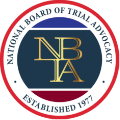While some West Virginia jobs seem more dangerous than others, the truth is that accidents and injuries in the workplace can happen in any line of work. If you’ve been hurt at work or developed a disease or illness while completing your job duties, you may be entitled to workers’ comp benefits. When medical bills are mounting and your return-to-work date is uncertain, it’s time to consult with experienced work-related injury attorneys. At Robinette Legal Group, PLLC, we offer a free initial consultation, so contact our Clarksburg personal injury lawyer today if you need help navigating the workers’ compensation system.
Most Common Workplace Injuries in West Virginia
According to the U.S. Bureau of Labor, the two most common workplace injuries are transportation incidents and contact with equipment and objects (typically “struck-by” object accidents). In one recent year, these two types of accidents accounted for nearly 75 percent of all workplace injuries in West Virginia.
However, these aren’t the only accidents that can happen at work. Other common workplace injuries and occupational diseases include:
- Slip or trip and fall accidents
- Exposure to toxic chemicals or fumes
- Repetitive motion injuries
- Back injuries from lifting heavy objects
- Falling from heights
- Overexertion (common in mining and construction/manufacturing)
- Electrocution
- Burns or serious injuries from explosions
- Entanglement
This list isn’t exhaustive – people can get hurt at work in many ways. If you sustained a serious injury and engaged in your job duties at the time, then you likely qualify for West Virginia workers’ compensation, a form of employer-paid work injury compensation.
What To Do After Suffering an Injury at Work
If your workplace injury is severe enough to need immediate or emergency medical attention, you should protect your health and get to a doctor or hospital immediately. Once your medical condition is stable, you must inform your employer about the injury within two days of its occurrence. If your injury isn’t critical, then notify your supervisor or HR that you were hurt and follow the company policies for workplace injuries. Usually, this includes seeing a company-approved doctor for evaluation.
What if your own doctor diagnoses you with a medical condition and they attribute it to your working conditions? For example, you may develop a chronic obstructive pulmonary disease (COPD) from mining or carpal tunnel syndrome from data entry. In that case, you should still report the diagnosis to your employer. They will likely require a second opinion about your condition, so be prepared to see the employer-approved doctor. Usually, you can’t collect workers’ comp benefits (if you’re eligible) without that visit.
Follow all instructions from your treating physician, including attending follow-up appointments and going to any rehabilitative therapy your doctor recommends. If your injury is serious enough to keep you out of work for a week or more, then stay in contact with your employer about your condition and prognosis. Once you’ve recovered, you can work with your employer for a return-to-work date.
If you seek West Virginia workers’ compensation benefits to compensate for your medical expenses and lost wages, you should file your claim immediately. You have only six months to file your claim in West Virginia. If you’re unsure how to do so or if you’re getting pushback from your employer, consult with an experienced work injury lawyer to learn more about your rights.
Compensation Available in West Virginia Workplace Injury Claims
West Virginia workers’ compensation applies to almost all WV employees. This coverage starts the first day you begin work – no waiting period – and there is no co-pay or other payment the employee must make. The benefits include:
- Costs for immediate medical treatment after your injury, including an emergency room visit and your initial doctor appointment
- Temporary total disability benefits, if the injury is severe enough that you miss work for at least three consecutive calendar days (two-thirds of your average weekly wage for up to 104 weeks)
- Temporary partial rehabilitation disability benefits, if you can do some work (this benefit pays for a percentage of the difference between pre- and post-injury wages)
- Permanent partial disability benefits, if the injured worker uses the loss of use of a body part or suffers another impairment
- Permanent total disability benefits, if the injured worker can no longer work in any capacity
- Rehabilitative therapy and ongoing medical expenses, such as surgery or physical therapy
- Funeral and burial costs, as well as weekly payments in the amount the deceased employee had been receiving, if the employee passed away due to the injury
If you have to travel to your doctor, specialist, or rehabilitative care provider, then you may also receive reimbursement for your mileage, meals, and lodging.
Should I File for Workers’ Compensation After a Workplace Injury?
If you’re an employee injured on the job, you should file for workers’ comp benefits. The program is intended to ensure injured workers have access to quality medical care and can cover their bills and other needs while out of work. It’s also intended to keep injured workers from suing their employer.
Workers’ comp benefits can help you regain your health and keep your financial boat steady while you heal. Talk with a Clarksburg work injury attorney to determine how to get all the benefits you’re entitled to. If you were injured by someone other than your employer, you may be able to file a claim against the at-fault party’s insurer. Your work injury lawyers will advise you about whether that applies to your case.
Can I Sue My Employer for My Injuries in WV?
Maybe. Some employers may knowingly allow unsafe working conditions to persist without correcting them. Suppose an employer fails to provide proper protective gear for their workers or refuses to complete repairs or upgrades needed to keep the job site safe. In that case, they may be considered negligent and liable for employee injuries. If you attempt to sue your employer, though, you won’t be able to file a workers’ comp claim.
Each work injury claim is different, though, and the information we’ve given you cannot replace personalized, professional advice from your work injury attorney. They can let you know if you have grounds to file a lawsuit and what your next steps should be.
Talk to an Experienced Workplace Injury Attorney in Clarksburg, West Virginia Today
Do you need help after being hurt at work, or have you developed an occupational illness due to your working conditions? Our work-related injury lawyers at Robinette Legal Group, PLLC, can help you learn more about your options for workers’ comp or a personal injury lawsuit in a free consultation with an experienced workplace injury lawyer. Contact us today to learn how we can help you pursue compensation through a workers’ comp claim or work injury lawsuit.
Our Awards and Certifications











Practice Areas
- Car Accidents
- Truck Accidents
- Motorcycle Accidents
- Pedestrian Accidents
- Personal Injury Overview
- Bicycle Accidents
- Brain Injuries
- West Virginia Burn Injury Attorney
- Commercial Delivery Truck Collisions
- Construction Site Injuries
- Dog Bite Injuries
- Drunk Driver (DUI) Accidents
- Gas Explosion Injuries
- Insurance Claim Disputes
- Mining Accident Injuries
- Medical Malpractice
- Rear-End Collisions
- Scaffold & Ladder Fall Injuries
- Slip And Fall Accidents
- Spinal Cord Injuries
- Uninsured Motorists
- Work Accidents
- Wrongful Death


